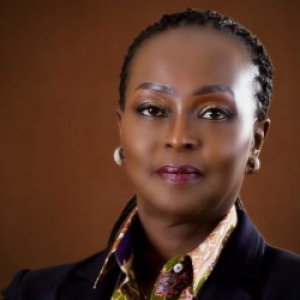Remarks by UN Resident Coordinator Yeşim Oruç at the launch of the 'Democracy Talks' series
Good Afternoon.
Hon. Minister of Parliamentary Affairs and Governance, Mme Gail Teixeira,
Dr. Paloma Mohammed, Vice Chancellor of the University of Guyana,
Hon. Minister Kwame McCoy,
Ambassadors, Members of the Diplomatic Corps, my UN colleagues,
Above all a warm welcome to students and academics of UG here in the room!
A little over a month ago, marking International Women’s Day in Guyana, we organized a film showing - a film about two young women in China. In the audience were representatives of countries of the global South and of the North. There were young Guyanese men and women. There were women of my generation from Guyana’s women’s movement. During the discussion after the film, I was struck by how this diverse audience empathised with the obstacles of patriarchy these two Chinese women were navigating. These women’s struggle for independence and freedom resonated with everyone in that auditorium because of the universality of the values, of the issues at stake.
When we speak of “Democracy” the same universality of values applies.
Ladies and gentlemen,
The UN Charter does not mention the word “democracy". When the Charter was signed, many of the countries which would consequently become UN members were still colonies. Many of the member states back then could not or did not subscribe this form of government.
Yet, the opening words of the Charter, “We the Peoples”, reflect fundamental principles and values on which the United Nations is founded: One, that the will of the people is the source of legitimacy of sovereign states and therefore of the UN itself; and two, that the will of people is enshrined in our inalienable rights, in universal human rights. These are fundamental, core principles, they are universal values.
This year, more than 50 countries — representing half of the world’s population — are going to the polls to exercise their fundamental right to express their will, the will of the people as the source of legitimacy for their governments. This is momentous.
I am old enough to remember, to actually have experienced democratic transitions. I was a student of transitions from military authoritarian regimes to democracy in Latin America; and then a UN official a decade later in Eastern Europe when we witnessed how human rights and democratic values lifted people and societies alike. The democratic transitions of those decades created human freedoms and opportunities.
They elevated humanity in so many ways – further underlining the core, universal principles and values that underpin democratic governance.
But today, around the globe, geopolitical tensions are rising. Democracy is eroding, while populism and extremism are increasing. Dr. Mohammed, to whom I am grateful for co-hosting this event, highlighted some of those emerging issues in Artificial Intelligence (AI) and social media, which are both opportunities and risks for our democratic values.
Therefore, it is timely, if not imperative, that we talk about the state of democracy, of the fundamental values it represents and how those values can and must be protected when they are under attack. This year of many elections demands this of us.
I am grateful to UNDP for organizing today’s event. Their most recent Human Development Report entitled Breaking the Gridlock: Reimagining cooperation in a polarized world, paints an alarming picture of uneven development leaving the poorest behind, exacerbating inequalities between countries, and stoking political polarization on a global scale. I look forward to hearing from our UNDP Representative Gerardo Noto on some of the initiatives UNDP has on further examining these linkages between human development and the global Sustainable Development Goals and democratic deepening and processes.
I am thankful to Marcela Rios Tabar, Former Minister of Justice and Human Rights of Chile who now heads IDEA in Latin America. She has been at the forefront of signalling democratic backsliding in the Americas from a gendered lens but also in championing democratic resilience – resilience of institutions, movements and of values in the face of onslaught. Our “Democracy Talks” will be enriched by your expertise.
And of course, our very own Hon. Minister Gail Teixeria whose political career is interwoven with the democratic history of Guyana. Thank you, Madame Minister, for being here.
Finally, I wish to thank the European Union and its Delegation here in Guyana for the unwavering partnership with the United Nations, based on values, on shared values and principles of human rights, freedoms and yes, democratic values. Thank you Ms. Evelina Melbarze for representing the EU today and for your work and partnership.
Excellencies, ladies and gentlemen, democracy is always a work in progress.
Our own institution, the UN, which sits at the centre of the international multilateral system, is arguably itself in need of democratization in order to be fit for purpose, to be able to confront the many challenges humanity faces from climate change to uneven development to backsliding of human rights to democratic norms; to be more inclusive, to have young people at its centre – in short to be able to continue to serve “We the Peoples".
The Summit of the Future, which will convene in New York in September, is all about this aspiration. It is that once-in-a-generation opportunity to enhance cooperation on critical challenges and address gaps in global governance, reaffirm existing commitments to the UN Charter and the global Sustainable Development Goals. It is about a much-reinvigorated multilateral system. It is about more effective global cooperation that can deal with today’s challenges as well as new threats in the future.
I encourage especially the University of Guyana students here in the room to engage with your representatives to leverage this Summit for solutions to build trust, to strengthen global cooperation, which helps uplift people, their voices, their rights, their democratic values and that stands for “We the Peoples!”
Thank you.
Speech by




